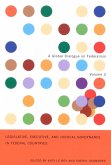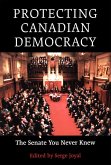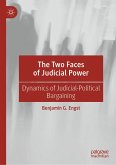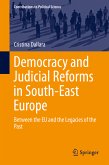The controversy raises challenging questions about the role of a powerful judiciary in a democracy. In Judicial Power and Canadian Democracy, a series of essays commissioned by the Institute for Research on Public Policy, some of Canada's foremost commentators - academics, politicians, and Supreme Court judges themselves - take up the debate. Some tangle over the pivotal question: should judges have the decisive say on issues involving entrenched rights that have profound implication for the policy preferences of elected bodies? Others examine related issues, including Supreme Court appointment procedures, interest group litigation, the historical roots of the notwithstanding clause, and the state of public opinion on Canada's courts. Those interested in the power of the judicial branch will find much in this collection to stimulate fresh thinking on issues that are likely to remain on the public agenda for years to come. Contributors include Joseph F. Fletcher (Toronto), Janet Hiebert (Queen's), Gregory Hein (Toronto), Peter W. Hogg (York), Paul Howe, Rainer Knopff (Calgary), Sebastien Lebel-Grenier (Sherbrooke), Howard Leeson (Regina), Kate Malleson (London School of Economics), E. Preston Manning (Reform Party of Canada), Hon. Beverley McLachlin (Supreme Court of Canada), F.L. Morton (Calgary), Pierre Patenaude (Sherbrooke), Peter Russell, Allison A. Thornton (Blake, Cassels and Graydon), Frederick Vaughan (emeritus, Guelph), Lorraine Eisenstat Weinrib (Toronto), Hon. Bertha Wilson (emeritus, Supreme Court of Canada), and Jacob Ziegel (Toronto).
Dieser Download kann aus rechtlichen Gründen nur mit Rechnungsadresse in A, B, BG, CY, CZ, D, DK, EW, E, FIN, F, GR, HR, H, IRL, I, LT, L, LR, M, NL, PL, P, R, S, SLO, SK ausgeliefert werden.









